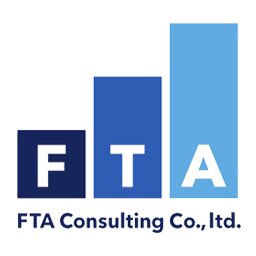Best Antitrust Lawyers in Chatuchak
Share your needs with us, get contacted by law firms.
Free. Takes 2 min.
List of the best lawyers in Chatuchak, Thailand
About Antitrust Law in Chatuchak, Thailand
Antitrust law in Chatuchak, Thailand, is designed to promote fair business competition and protect consumers from unfair trade practices. While Chatuchak is a district within Bangkok, antitrust regulations are governed by Thai national laws and enforced by agencies such as the Trade Competition Commission of Thailand (TCCT). These laws aim to prevent monopolies, collusion, abuse of market dominance, price fixing, and unfair trade practices. The rules apply to businesses of all sizes, including both local enterprises in Chatuchak and larger corporations operating within Thailand.
Why You May Need a Lawyer
There are several situations where individuals or businesses in Chatuchak may need legal assistance related to antitrust law. Common scenarios include:
- You suspect a competitor is engaging in unfair business practices, such as price fixing or market division
- Your company is being investigated by regulatory authorities for potential antitrust violations
- You are entering into business agreements and want to ensure compliance with competition law
- You are concerned about the possible abuse of a dominant position by a supplier, distributor, or competitor
- You want to report a case of anticompetitive conduct affecting your business or consumers in Chatuchak
- You receive a notice or warning from the Trade Competition Commission of Thailand
- You are involved in a merger or acquisition and need to assess the antitrust implications
Local Laws Overview
Antitrust or competition laws in Chatuchak are governed by the Trade Competition Act B.E. 2560 (2017) of Thailand. Key aspects that impact businesses and individuals in Chatuchak include:
- Prohibiting Monopolistic Practices: Businesses cannot abuse a dominant market position to unfairly squeeze out competition
- Preventing Collusion: Agreements among competitors to fix prices, limit production, or share markets are illegal
- Merger Controls: Large mergers and acquisitions may require review and approval to prevent market concentration that harms competition
- Unfair Trade Practices: Businesses must avoid unfair practices such as predatory pricing, refusal to supply, or imposing unfair conditions on trading partners
- Sanctions and Penalties: Violations can lead to administrative fines, reputational damage, and in serious cases, criminal prosecution
The law applies broadly to both Thai and foreign businesses operating in Chatuchak or anywhere in Thailand.
Frequently Asked Questions
What is considered a monopoly under Thai law?
A monopoly exists when a business controls more than half the market share in a relevant market for at least two consecutive years and earns over one billion baht in sales per year.
Are all types of business agreements subject to antitrust scrutiny?
Not every agreement is illegal. Only those that distort competition, such as price fixing, bid rigging, or market sharing, are prohibited.
How do I know if my business is under investigation?
The Trade Competition Commission of Thailand will notify businesses formally if they intend to initiate an investigation into possible antitrust violations.
What should I do if accused of an antitrust violation?
Seek immediate legal advice from an antitrust lawyer to assess your case, prepare your defense, and respond appropriately to authorities.
Are there exemptions under the Trade Competition Act?
Certain agreements may be exempt, such as those that benefit consumers, improve production, or foster technological progress, provided they do not unduly restrict competition.
Can small businesses in Chatuchak be affected by antitrust law?
Yes, the law applies to all businesses, regardless of size, if their conduct impacts competition in the market.
Does the law cover both goods and services?
Yes, the antitrust law applies to the supply of both goods and services in Chatuchak and throughout Thailand.
Can foreign firms be held liable under Thai antitrust law?
Yes, if their business activities impact markets in Thailand, foreign companies can be investigated and sanctioned.
How are antitrust complaints filed in Chatuchak?
Complaints can be filed directly with the Trade Competition Commission of Thailand, providing clear details and supporting evidence of alleged violations.
What penalties can be imposed for violating antitrust law?
Penalties include administrative fines, orders to cease prohibited conduct, and in severe cases, criminal charges with potential imprisonment.
Additional Resources
For those seeking more information or direct assistance, the following resources may be helpful:
- Trade Competition Commission of Thailand (TCCT): The national agency responsible for enforcing antitrust law and promoting fair competition
- Office of the Consumer Protection Board (OCPB): Can assist with consumer complaints related to unfair business practices
- Bangkok Legal Aid Centers: Offer legal advice and assistance for individuals and small businesses in Chatuchak
- Thai Chamber of Commerce: Provides information and workshops on compliance and fair trade practices
Next Steps
If you believe you are facing an antitrust issue or simply want to ensure your business complies with relevant laws in Chatuchak, consider the following steps:
- Gather all relevant documents, agreements, correspondence, and evidence related to your concern
- Consult with a qualified lawyer who specializes in Thai antitrust and competition law
- Discuss your situation privately and get advice on risk assessment, legal defense, and compliance
- If needed, prepare and submit a formal complaint to the Trade Competition Commission of Thailand
- Stay informed about your rights, obligations, and any developments in relevant laws or regulations
Remember, seeking legal advice early can help prevent costly disputes and protect your interests in antitrust matters in Chatuchak, Thailand.
Lawzana helps you find the best lawyers and law firms in Chatuchak through a curated and pre-screened list of qualified legal professionals. Our platform offers rankings and detailed profiles of attorneys and law firms, allowing you to compare based on practice areas, including Antitrust, experience, and client feedback.
Each profile includes a description of the firm's areas of practice, client reviews, team members and partners, year of establishment, spoken languages, office locations, contact information, social media presence, and any published articles or resources. Most firms on our platform speak English and are experienced in both local and international legal matters.
Get a quote from top-rated law firms in Chatuchak, Thailand — quickly, securely, and without unnecessary hassle.
Disclaimer:
The information provided on this page is for general informational purposes only and does not constitute legal advice. While we strive to ensure the accuracy and relevance of the content, legal information may change over time, and interpretations of the law can vary. You should always consult with a qualified legal professional for advice specific to your situation.
We disclaim all liability for actions taken or not taken based on the content of this page. If you believe any information is incorrect or outdated, please contact us, and we will review and update it where appropriate.










